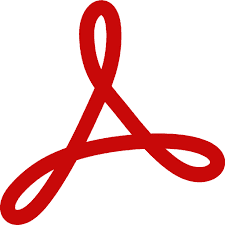What is the Hagberg Model of Personal Power?
Janet O. Hagberg defines Personal Power as the combination of external
power (capacity to ACT) with internal power (capacity to REFLECT). Her Personal
Power model distinguishes the following six stages of personal power and
leadership in organizations:

| |
Stage |
Characteristics: |
Leads by: |
Manages by: |
Motivated by: |
Needs from manager: |
|
Externally-oriented |
|
Power is primarily sought and obtained
from outside the person, from titles, positions, or other symbols or
status |
|
|
|
|
| 1. Powerlessness |
Secure and dependent, low in self-esteem,
uninformed, helpless but not hopeless |
Domination, force |
Muscling, force |
Fear |
Support, direction |
| 2. Power by Association |
Apprentice, learning the culture, dependent
on supervisor / leader, new self-awareness |
Sticking to the rules |
Maneuvering, catching up |
Learning |
Safety, freedom to explore |
| 3. Power by Achievement |
Mature ego, realistic and competitive,
expert, ambitious |
Charisma, personal
persuasion |
Monitoring,
Results |
Visible signs of success |
Feedback, challenge, questions |
|
Internally- oriented |
|
Power is primarily sought and obtained
from the inner journey of the person |
|
|
|
|
| 4. Power by Reflection |
Reflective / confused, competent in collaboration,
strong, comfortable with personal style, skilled at mentoring, showing
true leadership |
Modeling integrity, generating
trust |
Mentoring, process |
Inner exploration |
Time, space |
| The Wall |
Moving beyond your intellect, letting
go of control, embracing your shadow, going to your core, finding intimacy
with your higher power, glimpsing wisdom |
|
|
|
|
| 5. Power by Purpose |
Self-accepting, courageous, calm, conscience
of the organization, humble, practical mystics, elusive qualities, generous
in overpowering others, confident of life calling |
Empowering others, service to
others (Compare:
Servant-Leadership) |
Acting as catalyst |
Living their calling |
Protection |
| 6. Power by Wisdom |
Integrating shadow, unafraid of death,
powerless, quiet in service, conscience in the community / world, compassion
for the world |
Wisdom, a way of being |
Musing |
Self-sacrifice |
Nothing |
Origin of the Hagberg Model of Personal Power. History
The personal power model was developed originally as a culmination of coursework
of Hagberg towards her PhD in adult development at the University of Minnesota,
many years of business and professional experience, and personal interviews
with and feedback from hundreds of people in organizations.
Usage of the Hagberg Model of Personal Power. Applications
- Managers
- Managers should learn how to read employees and choose, in addition
to the most comfortable managing style (for themselves), an appropriate
management style for each employee. Compare:
Situational Leadership,
Contingency Theory.
- Leaders
- Basically, leaders at each of the stages develop followers who are
or want to be like them. Compare:
Leadership Pipeline.
- The position or status of the person is no guarantee of true leadership.
The quality of the person is what determines true leadership.
- According to Hagberg, to be a true leader requires that the person
has experienced a crisis of integrity and reached Stage 4 or higher. However,
such people often do not pursue positions of power for their own sake
and may even shy away from them.
- Self-reflection.
- Coaching,
Mentoring.
- HRM
Limitation of the Hagberg Model of Personal Power. Disadvantage
- The world surrounding Stage 4-6 people is run from much narrower Stage
1-3 visions, and can rarely appreciate or truly encourage the emergence
of higher levels of leadership.
Assumptions of the Hagberg Model of Personal Power. Conditions
Hagberg mentions the following assumptions:
- The stages of personal power are arranged in a developmental order.
- Each stage is different from all the others.
- People can be in different stages of power in different areas of their
lives, at different times, and with different people. However each of us
has a home stage which typically represents us.
- One can move through the home stages only in the order from one to six.
- Power is described and manifested differently at each stage.
- Each stage has positive and negative dimensions as well as developmental
struggles within it.
- Women are more likely to identify with certain stages and men with other
stages.
- You do not necessarily proceed to new stages merely with age or experience,
although both are factors.
- The most externally- and organizationally-oriented power stages (1-3)
show a marked contrast to the internally-oriented power stages (4-6).
- The development of the ego and then the release of the ego are central
tasks inherent within this model. Cultural rituals are necessary in order
to do that successfully.
- The stages primarily describe the development of individuals who live
and work in the USA in the first half of the twenty-first century. Compare:
Cultural Dimensions.
Book: Janet O. Hagberg - Real Power - Stages of Personal Power
in Organizations
|
Forum discussions about Personal Power (Hagberg).

|
The Power of Information
Over time, I have come to realise that the more informed you are, the more powerful and relevant you are most likely to be.
In my years of experience both in the oil and gas industry and financial in...
 2  1 comments |
|
|
|
Courses about Personal Power (Hagberg).

Beginners Course
|

Advanced Course
|

Course for Experts
|
|
|
|
The best, top-rated topics about Personal Power (Hagberg). Here you will find the most valuable ideas and practical suggestions.
|
|
|
Advanced insights about Personal Power (Hagberg). Here you will find professional advices by experts.

Consultancy Tips
|

Teaching Tips
|

Practical Implementation Tips
|
|
|
|
|
|
Various sources of information regarding Personal Power (Hagberg). Here you will find powerpoints, videos, news, etc. to use in your own lectures and workshops.

|
Power and Politics in Organizations Power Relations, Bases of Power, Political Behavior, Politics, Political Tactics, Organizational Politics
This presentation covers the topic of politics in organization, especially focusing on power issues. The presentation in...
|

|
Summary by Deepak Chopra on 'True, Enlightened Leadership' True Leadership, Enlightened Leadership, Servant Leadership, Authentic Leadership, Visionary Leadership, Leadership Valu
Indian writer of many alternative and spiritual books Deepak Chopra explains what he believes is "True Leadership": Grea...
|

|
Organizations and Structures Organizational Structure, Departmentalization, Centralization, Decentralization
Good presentation on Organizational Design.
Author: Michael Crandall.
First of all the concept of “organizations” is e...
|

|
Ineffective Leadership and Unethical Leadership Leadership Types, Management, Ethics
Presentation about Bad or Unethical Leadership that includes the following sections:
1. Webs of Significance
2. The We...
|

|
Bullying: Workplace Performance and Preventive Strategies Organizational Management, Strategy
This presentation is about bullying in the workplace, its impacts and management strategies that can help to address bul...
|

|
Personal Power Diagram Management Development
Download and edit this 12manage PowerPoint graphic for limited personal, educational and business use.
Republishing in ...
|
|
|
|
Useful tools regarding Personal Power (Hagberg).

News
|

Videos
|

Presentations
|
| |

Books
|

Academic
|

More
|
|
|
|
Compare with the Hagberg Model of Personal Power:
Bases of Social Power
| Situational
Leadership |
Servant-Leadership
| Spiral Dynamics
| Leadership Styles
| Leadership Pipeline
| Level 5 Leadership
| EPIC ADVISERS
Return to Management Hub: Communication & Skills | Ethics & Responsibility | Human
Resources | Leadership
More Management Methods, Models and Theory
|
|
|













